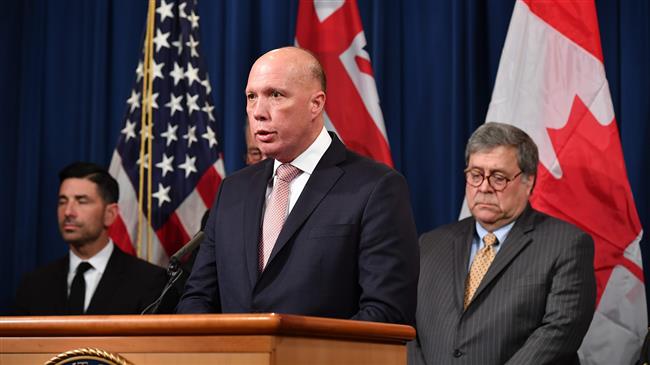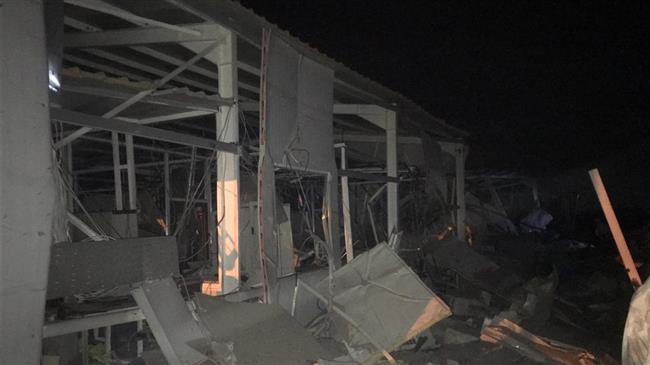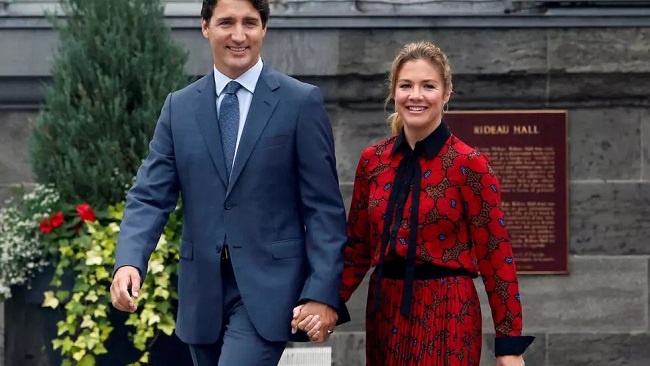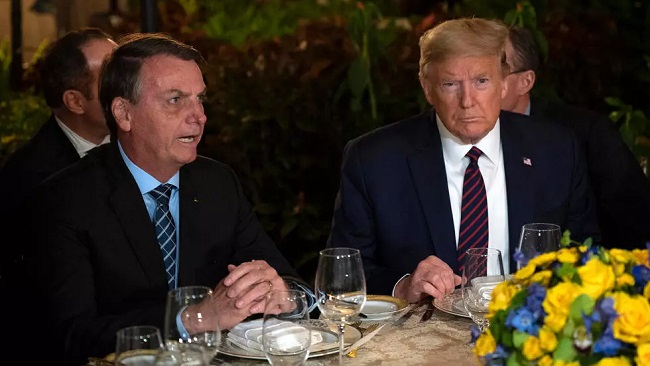13, March 2020
Australian minister who met with Ivanka Trump has coronavirus 0
A senior Australian politician tested positive for the new coronavirus and entered hospital quarantine Friday, days after returning from Washington where he met Ivanka Trump and US Attorney General William Barr.
Home Affairs Minister, Peter Dutton, was in the United States last week for a meeting with members of the FiveEyes intelligence alliance — Australia, the United States, Britain, Canada and New Zealand — that included Barr.
He also met with US President Donald Trump’s daughter Ivanka on March 6, according to a photo posted by the Australian embassy in Washington, which shows the pair standing close together.
It is not yet known when Dutton contracted the virus.
“This morning I woke up with a temperature and sore throat,” said Dutton, an influential member of the government and a key architect of Australia’s controversial immigration laws.
“It is the policy of Queensland Health that anyone who tests positive is to be admitted into hospital and I have complied with their advice.”
Dutton said he feels “fine” but his diagnosis will raise concerns about whether other members of the cabinet and Prime Minister Scott Morrison may have been infected.
The prime minister’s office confirmed Friday that Dutton attended a cabinet meeting on Tuesday, but other participants would not be quarantined.
“Only people who had close contact with the minister in the preceding 24 hours before he became symptomatic need to self-isolate,” a spokesman said. “That does not include the Prime Minister or any other members of the Cabinet.”
In contrast, New Zealand Internal Affairs Minister Tracey Martin — who also met Dutton in Washington — has self-isolated and will get tested for the virus on Saturday, local media reported.
Morrison will no longer attend a rugby match on Saturday night after earlier saying he would even as he announced a bar on gatherings of more than 500 people.
Dutton is among the 184 people in Australia who have been confirmed as having COVID-19. He is just the latest in a string of political figures around the world to suffer a scare.
Brazil’s President Jair Bolsonaro has been tested for the virus after a top aide was diagnosed with the disease following a trip to the US during which both met with Trump.
Canadian Prime Minister Justin Trudeau is in quarantine for two weeks after his wife tested positive for the virus.
British MP Nadine Dorries a junior health minister who helped craft legislation to fight the contagion, is also infected.
Several US lawmakers have isolated themselves after attending a conservative conference in late February.
The White House has insisted Trump does not need testing, despite interactions with several people who have been exposed to the virus, saying “only people with prolonged close exposure to confirmed positive cases should self-quarantine.”
(Source: AFP)



























14, March 2020
Rocket attack hits US-occupied Taji base in Iraq for 2nd time in a week 0
A barrage of rockets hit a base housing U.S. and other coalition troops north of Baghdad, Iraqi security officials said Saturday, just days after a similar attack killed three servicemen, including two Americans.
At least two Iraqi soldiers were wounded in the attack at Camp Taji, according to the Iraqi officials, who spoke on condition of anonymity in line with regulations.
The officials said over a dozen rockets landed inside the base. Some struck the area where coalition forces are based, while others fell on a runway used by Iraqi forces.
The was no immediate comment from the coalition regarding Saturday’s attack.
The attack was unusual because it occurred during the day. Previous assaults on military bases housing U.S. troops typically occurred at night.
The previous rocket attack against Camp Taji on Wednesday also killed a British serviceman. It prompted American airstrikes Friday against what U.S. officials said were mainly weapons facilities belonging to Kataib Hezbollah, the Iran-backed militia group believed to be responsible.
However, Iraq’s military said those airstrikes killed five security force members and a civilian, while wounding five fighters from the Popular Mobilization Forces, an umbrella organization including an array of militias, including some Iran-backed groups.
Iran-backed Shiite militia groups vowed to exact revenge for Friday’s U.S. strikes, signalling another cycle of tit-for-tat violence between Washington and Tehran that could play out inside Iraq.
America’s killing of Iraqi security forces might also give Iran-backed militia groups more reason to stage counterattacks against U.S. troops in Iraq, analysts said.
“We can’t forget that the PMF is a recognized entity within the Iraqi security forces; they aren’t isolated from the security forces and often are co-located on the same bases or use the same facilities,” said Sajad Jiyad, a researcher and former managing director of the Bayan Center, a Baghdad-based think tank.
“Now the (Iran-backed) groups who supported the initial strike in Taji, who were the most outspoken, feel obliged, authorized, maybe even legitimized to respond, ostensibly to protect Iraqi sovereignty but really to keep the pressure up on Americans,” he added.
“There are no red lines anymore,” Jiyad said.
Wednesday’s attack on Camp Taji was the deadliest to target U.S. troops in Iraq since a late December rocket attack on an Iraqi base, which killed a U.S. contractor. That attack set in motion a series of attacks that brought Iraq to the brink of war.
After the contractor was killed, America launched airstrikes targeting Kataib Hezbollah, which in turn led to protests at the U.S. Embassy in Baghdad.
A U.S. drone strike in Baghdad then killed Iranian Gen. Qassem Soleimani, a top commander responsible for expeditionary operations across the wider Mideast. Iran struck back with a ballistic missile attack on U.S. forces in Iraq, the Islamic Republic’s most direct assault on America since the 1979 seizing of the U.S. Embassy in Tehran.
The U.S. and Iran stepped back from further attacks after the Soleimani incident. A senior U.S. official said in late January, when U.S.-Iran tensions had cooled, that the killing of Americans constituted a red line that could spark more violence.
(AP)